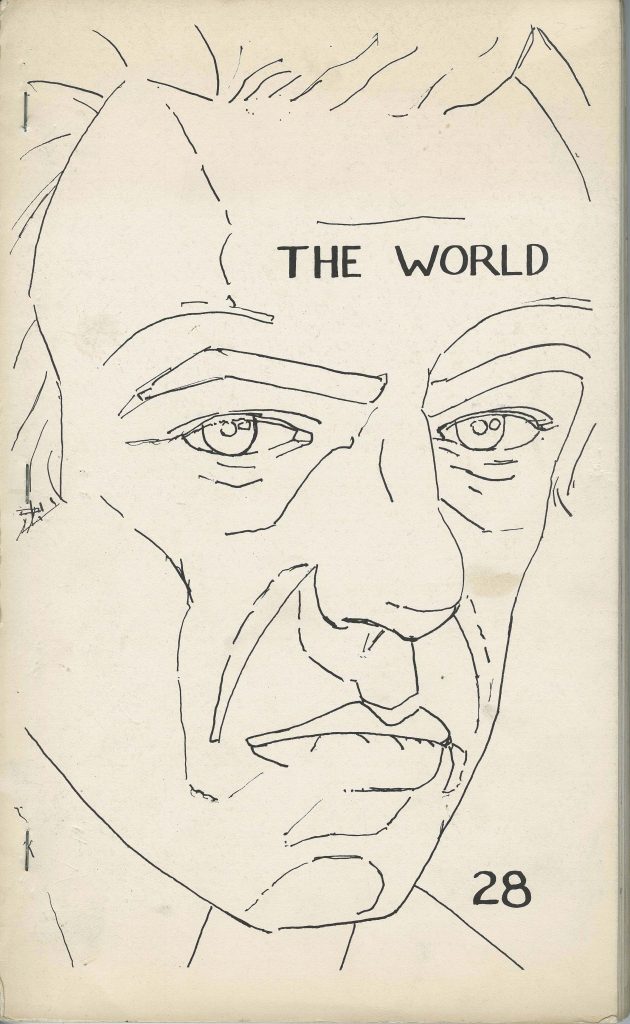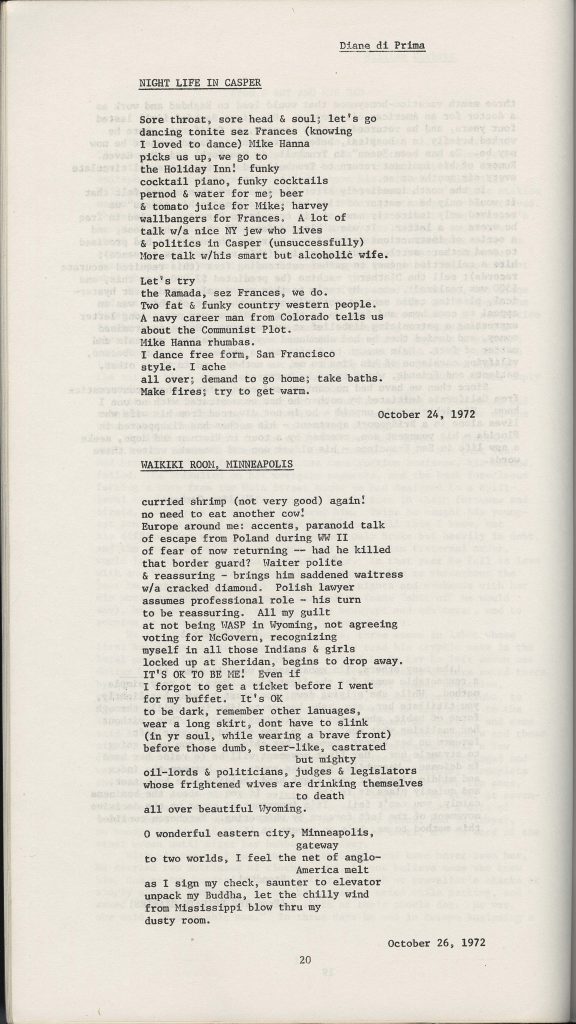A number of us have just returned from Minneapolis. There we attended the Preconference of the Rare Books & Manuscripts Section of the Association of College and Research Libraries, a division of the American Library Association.
The preconference theme was performance in special collections, broadly interpreted—from the refectory use of the earliest printed books to medical texts and the operating theater, to hip-hop archives, to “bibliography in action.”
It was an appropriately lively gathering, and we pay tribute to it here by an eclectic selection of Minneapolis-centric works from the Rare Book Collection: the city as setting for poetic expression, criminal doings, and collective action—all being varieties of performance. We begin with a nice segway from our last blog post, “Sisters Outsider.”


Diane di Prima, “Waikiki Room, Minneapolis” in World, no. 28 (May 1973), mimeographed publication of the famous Poetry Project at St. Mark’s Church In-the-Bowery, New York. The Waikiki Room was a drinking/dining establishment located in a succession of Minneapolis hotels. Apparently, it made poet di Prima feel more at home in the Midwest; doesn’t everyone feel more at home in a Tiki room lounge? St. Mark’s Church was, of course, the ultimate New York poetry performance venue of its era.

Ellen Hart, Death on a Silver Platter: (A Culinary Mystery) (New York : Fawcett Books, 2003), one in the series of mysteries featuring restaurant reviewer-sleuth Sophie Greenway, set in Minneapolis. The food in the fair city is a real draw: lots of farm to table, no scary servings as pictured on this paperback’s cover. In particular, French Meadow Café represented an outstanding dining act for some of us. And we didn’t feel threatened for one moment. Perhaps these Minneapolis mysteries are in the tradition of Scandinavian crime novels: safe societies longing for the drama of surprising violence.
William F. Dunne and Morris Childs, Permanent Counter-Revolution. The Role of the Trotzkyites in the Minneapolis Strikes (New York: Workers Library, [1934]), no. [8] in a vol. with binder’s title: Communist and Socialist Pamphlets. We all felt the power and plight of workers on Tuesday evening, taking in the exhibitions and film at the Mill City Museum, located in what was once the nation’s largest flour mill. This pamphlet on Depression-era strikes in Minneapolis pits the Communist Party of America against Minnesota’s Farmer-Labor Party and Trotzkyite leaders. Its card-carrying Communist authors are William F. Dunne, who grew up in Minnesota, and Morris Childs, who later would be awarded the Presidential Medal of Freedom for Intelligence—in 1987—for his decades of work as an anti-Soviet secret agent. Although Childs was not working for the F.B.I. in 1934, the title of this writing—Permanent Counter-Revolution—ends our Minneapolis production with unexpected retrospective irony. As we’ve come to learn, however, rare books always bring us the unexpected.

